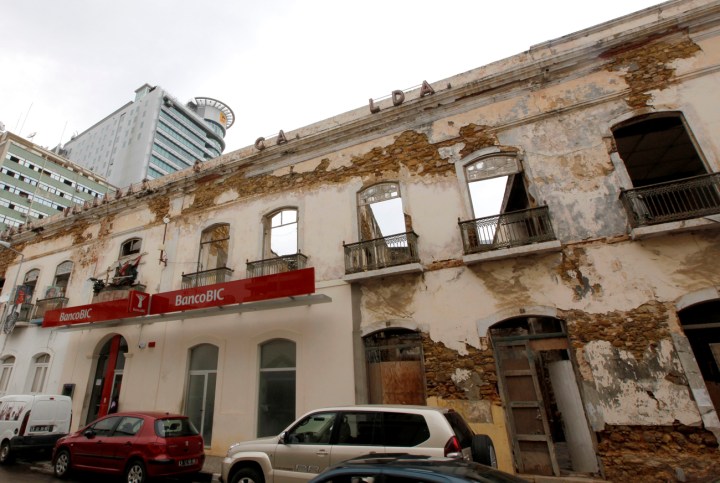A brief look: Angolan radio journalist held for questioning

You could look at the arrest of Angolan journalist Adão Tiago as faintly worrying – he was questioned by police for reporting on a nationwide mass-fainting epidemic. But it's a lot more serious than that, as the Angolan government seeks to control the narrative, rather than finding out the truth. By THERESA MALLINSON.
Since April, more than 800 teenagers have keeled over in Angola, in what has been termed a “mass fainting epidemic”. The government was worried enough to set up a commission to find out the cause of these events. Although some of those who fainted were tested for toxic substances, the commission announced last week that the fainting had not been caused by ingesting poisonous gas, as had been speculated.
“Tests do not confirm any toxic substance causing the fainting in several schools in the country,” said Paulo de Almeidaaid, the deputy commander of the national police, as reported in The Daily Nation. “The tests were done and the results are negative.”
Be that as it may, the government has not proposed any alternative explanation, beyond a vague allusion to “psychological problems” and “mass hysteria”. It also blamed the media for sensationalising events. To be fair, incidents of mass hysteria are a genuine phenomenon, with one being reported in a Tanzanian school in 2008.
However, the Angolan government’s approach of attempting to censor information has surely contributed to the hysteria, rather than quelled it. Last week Radio Ecclesia reporter Adão Tiago, who is also a school teacher, was hauled in for questioning after reporting on students fainting at his school. He was detained for 23 hours.
The Committee to Protect Journalists has demanded an explanation for the government’s behaviour. “The arrest of journalist Adão Tiago highlights the Angolan government’s obsession with controlling information and dictating the narrative instead of focusing on addressing a very serious national crisis,” said CPJ Africa Advocacy co-ordinator Mohamed Keita. “We call on Angolan authorities to explain Tiago’s detention immediately.”
Angola is classified as “not free” in Freedom House’s World Press Freedom index, and the government has a history of cracking down on journalists who question the official versions of events. Tiago’s experience is a sobering reminder that journalism in that country is not for the faint of heart. DM
Read more:
- Angolan journalist arrested for reporting on ‘mass fainting’, on Roy Greenslade’s media blog on the Guardian;
- Angola detains journalist over report on mass fainting, on the Committee to Project Journalists website; and
- Angola blames fainting wave in schools on hysteria, in The Daily Nation.
Main Photo: Downtown Luanda, Angola. Reuters.

















 Become an Insider
Become an Insider